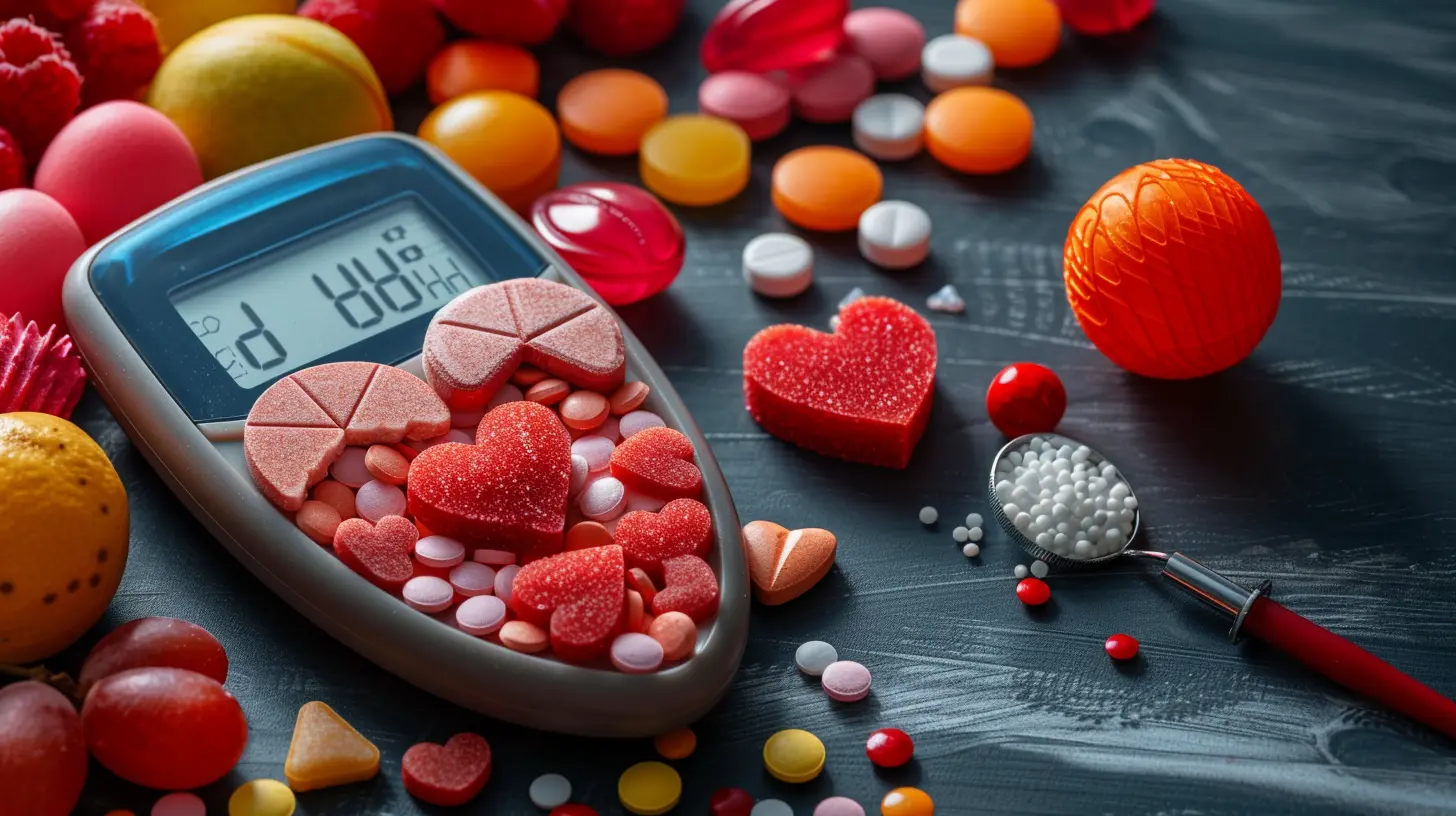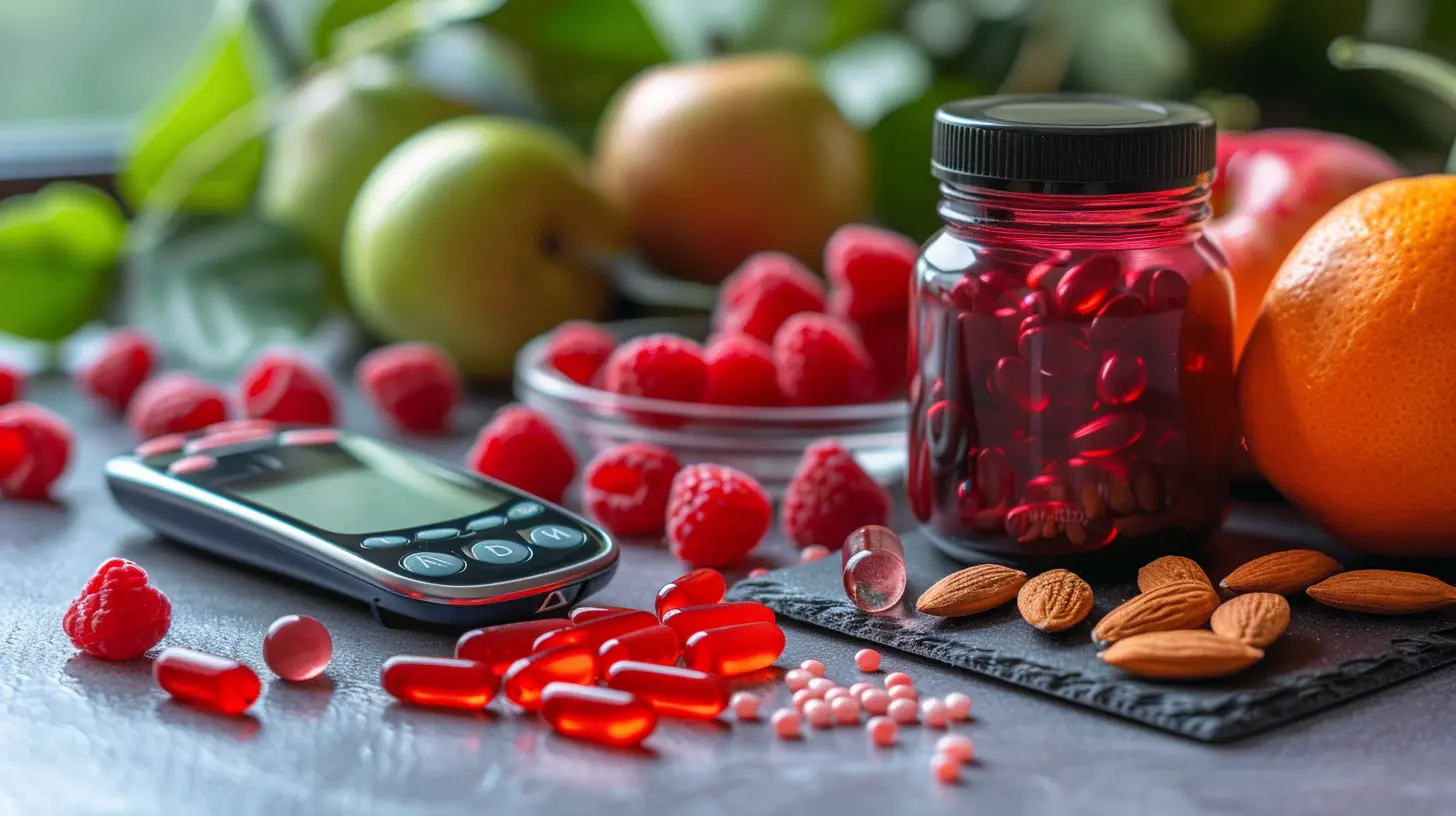The Relationship Between Blood Sugar and Hormones
11 October 2025
Ever wondered how blood sugar and hormones are linked? It’s a fascinating relationship that impacts everything from your energy levels to how you feel daily. Think of it like a finely tuned orchestra—when everything works in harmony, it’s smooth sailing. But when that balance is thrown off, things can get a little chaotic. If you’ve been curious about how these two factors influence each other (and, ultimately, your health), you’re in the right place. Let’s dive into the connection between blood sugar and hormones, and unpack how they work together to keep your body running like a well-oiled machine.
What Is Blood Sugar, and Why Does It Matter?
First, let’s clear up what we’re talking about when we say "blood sugar." Blood sugar, or blood glucose, is the main sugar found in your blood. It comes from the food you eat, and your body uses it as its primary energy source. To regulate this sugar, your body relies on an important hormone—insulin.Insulin acts like a key that unlocks cells so glucose can enter and be used for energy. Without it, sugar would accumulate in your bloodstream, which is not ideal. High or low blood sugar levels over time can lead to a host of issues, from diabetes to energy slumps and even hormonal imbalances. Yep, your hormones are heavily intertwined with your blood sugar levels. But how, exactly?
Hormones: The Body's Messengers
Now, let’s chat about hormones. Hormones are chemical messengers that travel through your bloodstream, telling different parts of your body what to do. They’re kind of like text messages being sent to different organs, saying, "Hey, it’s time to get to work!"But hormones don’t just work alone—they talk to each other. When one hormone gets out of whack, it can create a domino effect that impacts others. Blood sugar plays a big role in this hormonal symphony because it directly influences the release of certain hormones. Keep reading; it’s about to get even more interesting.
The Role of Insulin: Your Blood Sugar Regulator-in-Chief
We can’t talk about blood sugar without giving insulin the spotlight. Insulin is produced by your pancreas and is essential for keeping your blood sugar levels stable. When you eat, especially carbs, your blood sugar rises, and your pancreas releases insulin to bring it back down to a safe level.But here’s the catch: If you constantly consume a diet high in sugar or refined carbs, your body starts to produce more and more insulin just to cope. Over time, this can lead to insulin resistance, where your cells stop responding to the hormone effectively. It’s like a broken lock—no matter how much insulin your body produces, it can’t open the door to let glucose in.
Insulin and Weight Gain
Too much insulin in your body doesn’t just mess with your blood sugar—it also signals your body to store fat. Yep, insulin is also known as the "fat-storage hormone." That’s why people with insulin resistance often struggle with weight gain, particularly around the belly area. It’s not just about diet; hormones play a huge role here.
Cortisol: The Stress Connection
Ever felt "hangry," or irritable when you haven’t eaten in a while? That’s cortisol coming into play. Cortisol is your body’s main stress hormone, and it also has a say in blood sugar regulation. When your blood sugar drops too low—say, when you skip a meal—your body releases cortisol to signal your liver to release stored glucose into your bloodstream.But here’s the problem: Chronic stress can lead to consistently high cortisol levels, which cause your blood sugar to rise. Over time, this can contribute to insulin resistance and even throw your other hormones (like estrogen and progesterone) out of balance. Stress eating? Not just in your head—it’s a hormonal response!
The Blood Sugar-Hormone Connection in Women
Ladies, your hormones are even more closely linked to your blood sugar than you'd think. Let’s talk about estrogen and progesterone, the two main hormones that regulate your menstrual cycle.Blood Sugar Fluctuations During Your Cycle
Throughout your cycle, your estrogen and progesterone levels fluctuate, which can make your blood sugar levels more unpredictable. For example, in the luteal phase (the second half of your cycle, after ovulation), you might notice more sugar cravings or feel less stable energy-wise. That’s because progesterone can make you more insulin-resistant during this phase, leading to higher blood sugar levels.Polycystic Ovary Syndrome (PCOS)
If you have PCOS, you’re likely already familiar with how tricky blood sugar management can be. Many women with PCOS have insulin resistance, which creates a vicious cycle: higher blood sugar levels lead to more insulin production, which worsens hormonal imbalances and PCOS symptoms like irregular periods, acne, or weight gain.Sleep, Blood Sugar, and Hormones: A Three-Way Dance
Did you know that your blood sugar levels can mess with your sleep too? Sleep and hormones are a tight-knit pair, and blood sugar plays a starring role in the mix.Sleep and Cortisol
When your blood sugar dips too low overnight, your body releases cortisol to bring it back up. This can interrupt your sleep, leaving you feeling groggy and irritable the next day. Lack of sleep, in turn, can increase insulin resistance, creating—you guessed it—another vicious cycle.Sleep and Hunger Hormones
Sleep deprivation also messes with your hunger hormones, ghrelin and leptin. Ghrelin makes you feel hungry, while leptin signals fullness. When you don’t get enough sleep, ghrelin levels rise, and leptin levels drop, making it harder to resist sugary snacks. Ever reached for a donut after a sleepless night? Now you know why.Tips to Balance Blood Sugar and Hormones
Now that we’ve covered how blood sugar and hormones are connected, let’s look at what you can do to maintain balance. Here are some practical tips to get started:1. Prioritize Protein and Healthy Fats
Eating balanced meals with protein, healthy fats, and fiber can stabilize your blood sugar levels throughout the day. Think of it as giving your body a slow-burning, consistent fuel source rather than a quick sugar spike.2. Avoid Refined Carbs and Sugary Drinks
Refined carbs and sugary beverages are like a sugar bomb for your blood sugar—and your hormones. Opt for whole grains, fruits, and veggies instead.3. Manage Stress
Stress management is key to keeping cortisol in check. Consider incorporating relaxation techniques like meditation, deep breathing, or even yoga into your daily routine.4. Get Quality Sleep
Good sleep hygiene can do wonders for balancing your blood sugar and hormones. Aim for 7–9 hours of quality sleep each night.5. Move Your Body Regularly
Exercise, especially strength training and cardio, can help improve insulin sensitivity and stabilize blood sugar levels.6. Stay Hydrated
Sometimes, dehydration can masquerade as hunger or low energy. Keep a water bottle handy and sip throughout the day.7. Eat Consistently
Skipping meals can cause blood sugar crashes and trigger cortisol spikes. Make sure to eat small, balanced meals regularly to keep your energy steady.Final Thoughts
The relationship between blood sugar and hormones is complex, but understanding it can empower you to take charge of your health. Remember, your body is like a finely tuned machine, and keeping your blood sugar levels stable is one of the best ways to ensure that all your "parts"—including your hormones—work together seamlessly.By making small, manageable changes to your diet, sleep, and stress levels, you can balance your blood sugar and keep your hormones happy. And the best part? You’ll feel more energized, focused, and in control of your health.
all images in this post were generated using AI tools
Category:
Healthy HormonesAuthor:

Madeline Howard
Discussion
rate this article
1 comments
Sebastian McCartney
Blood sugar and hormones: the ultimate tag team in our daily drama of snack choices!
October 13, 2025 at 4:42 AM

Madeline Howard
Absolutely! Understanding how blood sugar and hormones interact helps us make smarter snack choices and maintain balance throughout the day.


